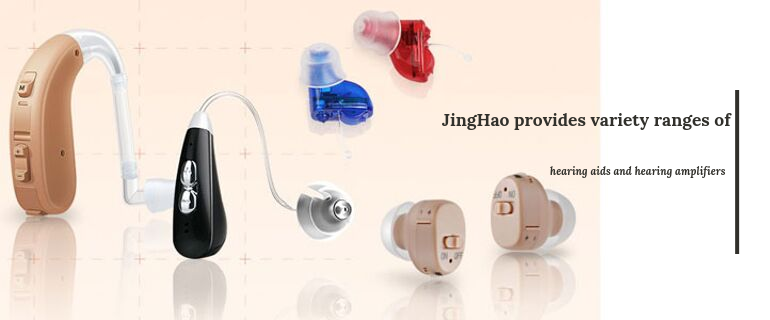
The great JingHao high quality hearing aids are including type of in the ear hearing aid,ITE hearing aid,behind the ear hearing aid,BTE hearing aid,digital hearing aid,invisible hearing aid,rechargeable hearing aid,mini hearing aid etc..

Research into ageing has shown links between dementia and hearing loss. According to researchers on Ageing, people with hearing loss lose more brain matter each year than those with normal hearing.
They studied MRI scans taken over the course of 10 years to see how the brain shrinks as it ages. These scans clearly showed that the participants with hearing loss were losing an extra cubic cm each year than hearing participants. It also showed that the greater the hearing loss, the greater the loss of brain tissue.
The areas most affected by tissue loss are the parts of the brain dedicated to auditory processing.
Some specialists have said that this is not surprising. If part of the brain is unused it will begin to waste away, just like any other part of the body. Other scans have shown that the brains auditory processors become utilized by the visual part of the brain. This makes sense as people with hearing loss rely more on visual cues for communication.
Researchers have also suggested that the part of the brain responsible for auditory processing is also used in retaining information and working memory. If this area is shrinking then that would account for the link between hearing loss and dementia.
Another suggestion for the link is cognitive overload. Everyday activities and communication become much harder when you can’t hear. This extra effort by the brain becomes exhausting over time and the brain has less energy for other processing tasks, such as memory.
Social factors also play a part in dementia. People who suffer from depression and become socially isolated are more at risk of developing dementia. So it’s possible that people who become socially isolated or depressed through their hearing loss become part of that high risk group.
So how can hearing aids help?
Hearing aids are primarily useful in improving the hearing and speech comprehension of people who have hearing loss that results from damage to the small sensory cells in the inner ear, called hair cells. This type of hearing loss is called sensorineural hearing loss. The damage can occur as a result of disease, aging, or injury from noise or certain medicines.
A hearing aid magnifies sound vibrations entering the ear. Surviving hair cells detect the larger vibrations and convert them into neural signals that are passed along to the brain. The greater the damage to a person’s hair cells, the more severe the hearing loss, and the greater the hearing aid amplification needed to make up the difference. However, there are practical limits to the amount of amplification a hearing aid can provide. In addition, if the inner ear is too damaged, even large vibrations will not be converted into neural signals. In this situation, a hearing aid would be ineffective.
Link:Can hearing aids Products help to prevent dementia?
REF: Hearing Aids Supplier , Hearing amplifier, Hearing Aids TypesThe article comes from the Internet. If there is any infringement, please contact service@jhhearingaids.com to delete it.



